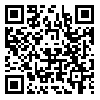دوره 23، شماره 2 - ( 5-1404 )
جلد 23 شماره 2 صفحات 65-57 |
برگشت به فهرست نسخه ها
Research code: 2829
Ethics code: IR.LUMS.REC.1401.249
Download citation:
BibTeX | RIS | EndNote | Medlars | ProCite | Reference Manager | RefWorks
Send citation to:



BibTeX | RIS | EndNote | Medlars | ProCite | Reference Manager | RefWorks
Send citation to:
Mostafanezhad M, Valizadeh F, Karami K, Mohammadi R. Teach-Back Training to Enhance Self-Efficacy among Mothers of Preterm Infants: A Quasi-Experimental Study. Nursing and Midwifery Journal 2025; 23 (2) :57-65
URL: http://unmf.umsu.ac.ir/article-1-5387-fa.html
URL: http://unmf.umsu.ac.ir/article-1-5387-fa.html
Teach-Back Training to Enhance Self-Efficacy among Mothers of Preterm Infants: A Quasi-Experimental Study. مجله پرستاری و مامایی. 1404; 23 (2) :57-65
: (657 مشاهده)
Introduction Mothers of premature infants need adequate knowledge, skills, and confidence to cope effectively with the challenges associated with neonatal intensive care. Identifying educational strategies that strengthen maternal self-efficacy is therefore essential. This study aimed to examine the effect of teach-back–based education on the self-efficacy of mothers of premature infants admitted to the neonatal intensive care unit (NICU).
Methods This quasi-experimental study was conducted among 66 mothers of premature infants hospitalized in the NICU of Shahid Rahimi Hospital, Khorramabad, Iran, during 2022–2023. The control group received routine ward education, while in the intervention group, nurses—after completing a teach-back training workshop—used the teach-back method to educate mothers. Data were collected using a demographic information form and the Barnes Parental Self-Efficacy Questionnaire. Statistical analyses included paired t-test, independent t-test, Cohen’s d effect size, chi-square, and Fisher’s exact tests.
Results At baseline, there were no significant differences between the two groups in demographic characteristics or mean self-efficacy scores (P > 0.05). Following the intervention, a significant increase in mean self-efficacy scores was observed in both the intervention (P < 0.001, d = 1.624) and control (P < 0.001, d = 0.675) groups. However, the post-intervention mean self-efficacy score was significantly higher in the intervention group compared with the control group (P = 0.001, d = 0.885).
Conclusion Teach-back–based education had a stronger and more positive effect on the self-efficacy of mothers of premature infants than routine training. It is recommended that nurses integrate this method into routine care for mothers in NICUs and that nursing managers provide supportive conditions for implementing such retraining programs.
Methods This quasi-experimental study was conducted among 66 mothers of premature infants hospitalized in the NICU of Shahid Rahimi Hospital, Khorramabad, Iran, during 2022–2023. The control group received routine ward education, while in the intervention group, nurses—after completing a teach-back training workshop—used the teach-back method to educate mothers. Data were collected using a demographic information form and the Barnes Parental Self-Efficacy Questionnaire. Statistical analyses included paired t-test, independent t-test, Cohen’s d effect size, chi-square, and Fisher’s exact tests.
Results At baseline, there were no significant differences between the two groups in demographic characteristics or mean self-efficacy scores (P > 0.05). Following the intervention, a significant increase in mean self-efficacy scores was observed in both the intervention (P < 0.001, d = 1.624) and control (P < 0.001, d = 0.675) groups. However, the post-intervention mean self-efficacy score was significantly higher in the intervention group compared with the control group (P = 0.001, d = 0.885).
Conclusion Teach-back–based education had a stronger and more positive effect on the self-efficacy of mothers of premature infants than routine training. It is recommended that nurses integrate this method into routine care for mothers in NICUs and that nursing managers provide supportive conditions for implementing such retraining programs.
| بازنشر اطلاعات | |
 |
این مقاله تحت شرایط Creative Commons Attribution-NonCommercial 4.0 International License قابل بازنشر است. |




 umsu.ac.ir ,
umsu.ac.ir , 